We have helped the Iraqis take ownership
It is a confident Lt. gen. Michael Lollesgaard who is handing over the reins of the NATO advisory mission in Iraq to the Italians. After 18 months of Danish leadership, the ground stone has been laid for a basic modernization of the Iraqi defence. However, the Iraqis need more time to complete the task, the Lt. gen. says.
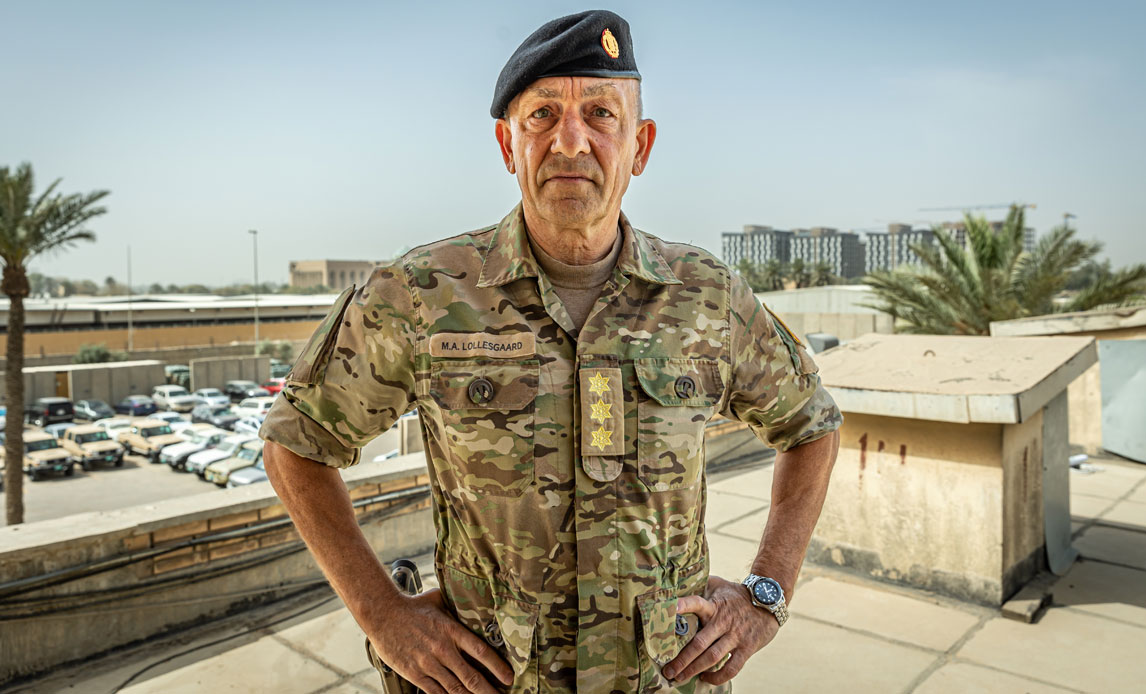
Lt. gen. Michael Lollesgaard at his Iraqi headquarters. Photo: Tue Skals / Danish Armed Forces
By Defence Command Denmark
Denmark took over command of the NATO advisory mission in Iraq in December of 2020. Now Lt. gen. Michael Lollesgaard, who has been the commander since May of 2021, has handed over the responsibility for the mission to the Italians and has returned to Denmark. He does so confident that Denmark in his time as commander has laid out the tracks leading to a positive development of the Iraqi defence. In his view, the transfer of authority is not the end.
“We are still in the beginning of the mission. We have built a strong framework and have clear goals. We can tell how to get from A to B and what we have to do on the way. That creates a common thread in the advisory work so that perhaps it will not hurt as much when we change advisors,” Michael Lollesgaard says.
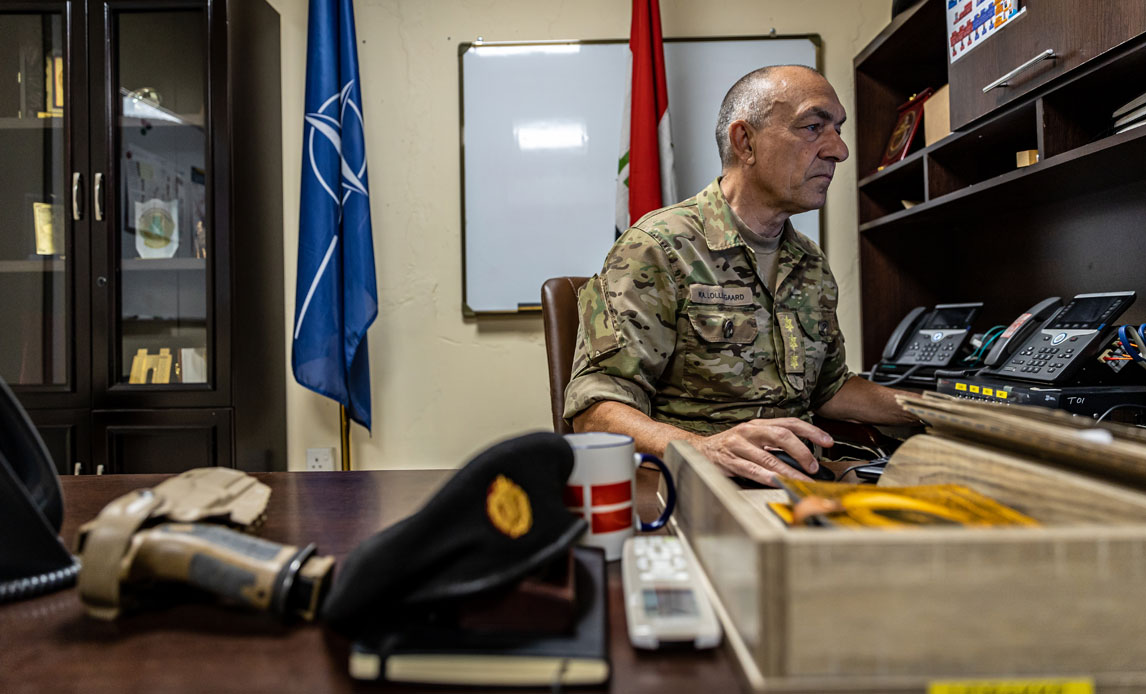
Photo: Tue Skals / Danish Armed Forces
The transformation of the Iraqi armed forces and the mission advisory is centred around 14 long-term objectives, describing what the Iraqis are expected to achieve within the next around three years in different respects. The long-term objectives are revised regularly. Progress or lack thereof is analysed, and short-term objectives are set.
However, after a year as commander it is not concrete results in the 14 areas that Michael Lollesgaard points to as the legacy he is leaving for his successor. Rather it is the fact that the Iraqis have taken ownership in pushing the entire process further.
“I believe that what I have accomplished as commander of the mission is the creation of a really strong context of Iraqi ownership. One of the experiences I have from capacity building in Bosnia and Mali is that ownership is hugely important. Because of this, we will not write a single sentence for them; they have to do it on their own. We provide advice on how to approach a given challenge, but it is the Iraqis themselves who have to put pen to paper,” says Lt. gen. Michael Lollesgaard.
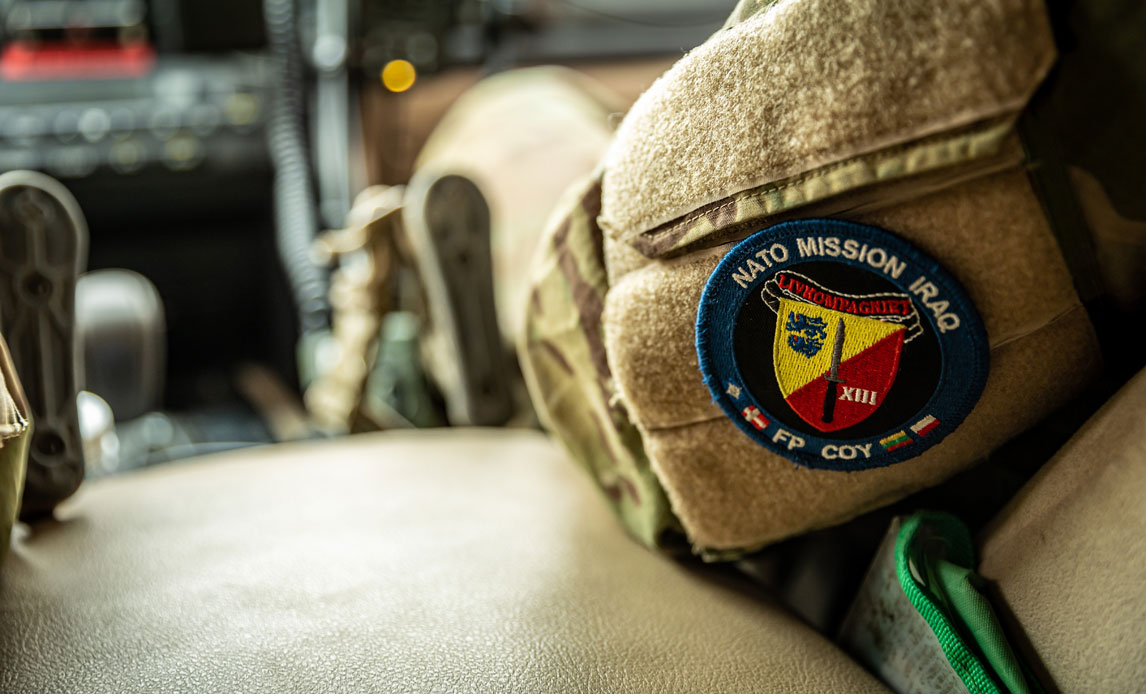
Photo: Danish Armed Forces
A larger defence plan is underway
One of the central areas in which Michael Lollesgaard has worked concerns getting the Iraqis to write a realistic plan for the entirety of their armed forces.
“The Iraqis lack a coherent defence plan which is based on thorough analysis and include for instance budgeting. The situation now is that the head of the army has his own five-year-plan, costing as much as the entire defence budget. Therefore, we are working on a planning process for the whole of the Iraqi defence, one of the goals being that in two years’ time they will have a thoroughly analysed defence plan. It will describe the different prioritizations as well as their economic consequences, so that the budget is tied up with the operational units,” Michael Lollesgaard explains.
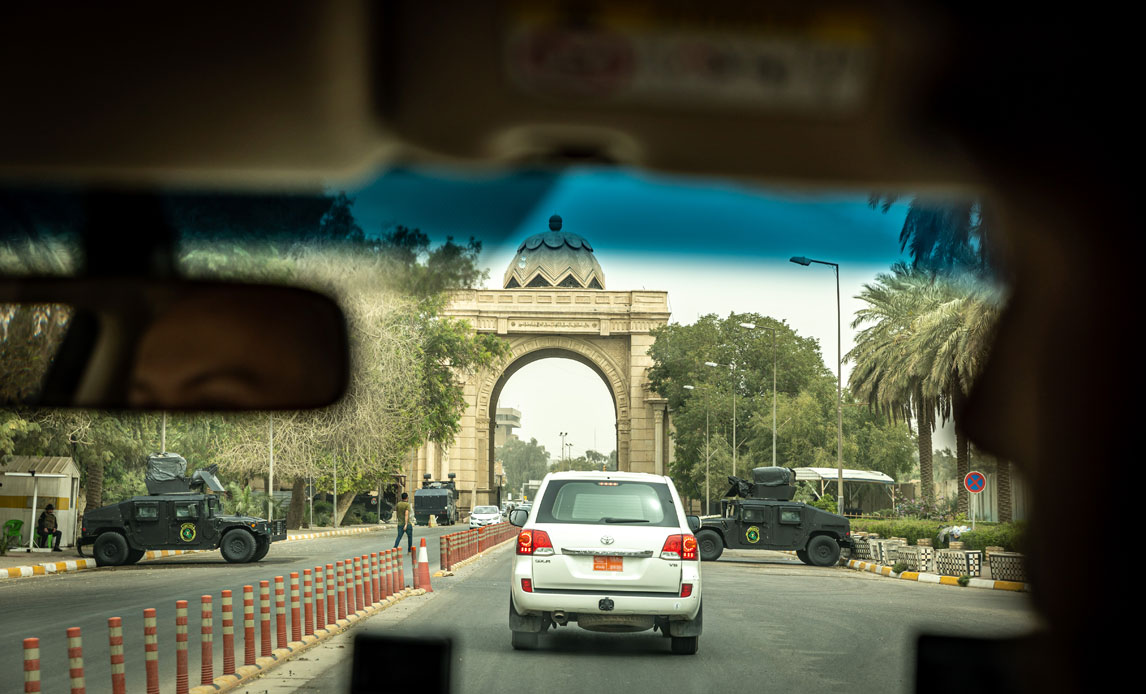
Photo: Danish Armed Forces
The fight against corruption is decisive
Another decisive measure is focusing on the corruption that runs through the entire Iraqi society. It also applies to the armed forces.
“Iraq ranks high among the World’s most corrupt countries, so we are facilitating an anti-corruption program. Together with the Iraqis, we have conducted an investigation on the extent of corruption within the armed forces, and based on that we have brought in certain measures in the Ministry of Defence. They include an investigative unit, a whistle blower program, and a policy relating to the personnel and so on. We have also integrated anti-corruption training in all training modules on all levels. However, we will not be solving the problem in just a few years. It will take at least a generation. We have started it and the Iraqis must finish it”, states Michael Lollesgaard.
Iraq is not like Afghanistan
The Iraqi army’s total collapse in 2014 and the Afghan army’s equivalent after the NATO exit in the late summer of 2021 has made some people question whether the process started by NATO in Iraq can even be completed.
Michael Lollesgaard, however, do not think that the armed forces of the two countries are comparable.
”The Iraqis have been at war for 40 years. There is some sort of base of experience, and the corps of officers is of an entirely different calibre than was the case in Afghanistan. Here you have a fully developed system, including Military College, Staff College, War College, education on a master’s level etcetera, and so the people, we work with, are well trained. Militias and the Iranians still excerpt influence but it is my conviction that the cohesion of the Iraqi defence is much better than in 2014. Therefore, the conditions are much different than in Afghanistan”, says Michael Lollesgaard.
“We have to be patient”
On the brink of handing over command, Michael Lollesgaard finds it difficult to say if he has achieved what he hoped for when he took over as commander in May 2021. He is unconditionally most happy about the achievement of creating Iraqi ownership of the entire reformation process. He points to the fact that measuring success in NATO’s work in Iraq should be done in a five to seven year perspective.
”I think the course has been set. But we are working with huge systems and a military of 250.000 men. It is old-school procedures, it is meetings, it is pen and paper, and you cannot just write an email to all employees in the Iraqi Armed Forces and tell them about the newest policy. At the same time, you have to keep in mind that many of them are hardened combat troops. They are out fighting every day, so there is also a certain degree of resistance against reforms among them because they are very proud people. For that reason, we will not ram something down their throats. They must have ownership and think that it is a good idea, so it takes time. That’s just the nature of capacity building: Of course we can do it, we just have to be patient”, says Lt. gen. Michael Lollesgaard.
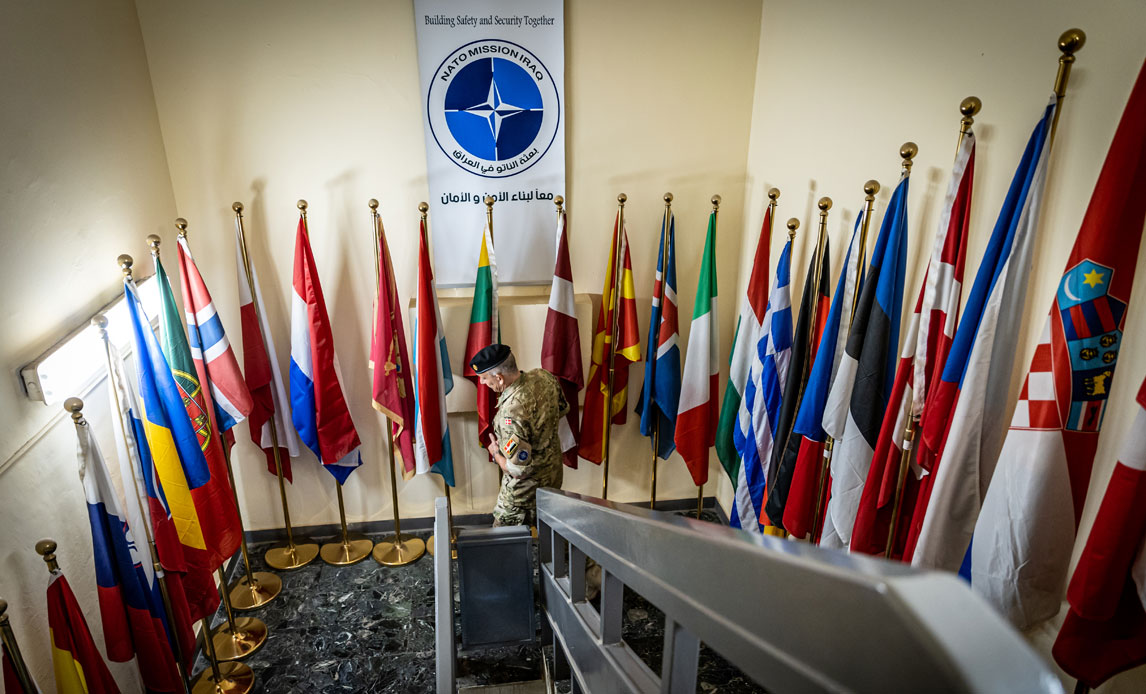
Photo: Tue Skals / Danish Armed Forces
The mission is still important
Even though Denmark are now transferring authority of the NATO Mission Iraq – NMI – to the Italians and at the same time ending the helicopter contribution, the Danish defence will keep contributing to the mission. Michael Lollesgaard do not wish to enter into a talk on whether or not Denmark should prioritize sending troops to the NMI, when they are also needed in Eastern Europe. Nevertheless, he would like to state that the mission in Iraq is still important.
“The mission makes a lot of sense. The region is important. Iraq attempt – as the only democracy in the region – to play a consolidating role, and it is important that we play a part in developing the Iraqi armed forces while keeping the Iranian influence at bay with the presence of OIR and NATO. Also in that respect, the mission serves an important purpose,” Michael Lollesgaard states.